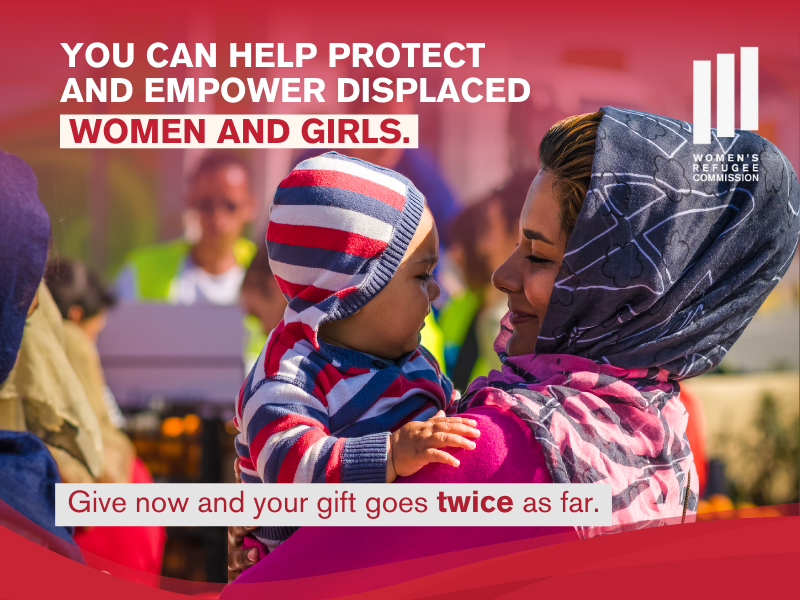New Report Examines Reproductive Health Services in Cox’s Bazar: Contraceptive and Menstrual Regulation Services Widely Available in Refugee Camps
New York, NY – A new report from the Women’s Refugee Commission (WRC) released today indicates that contraceptive and menstrual regulation (MR) services were widely available across the refugee camps in Cox’s Bazar, Bangladesh. Since August 2017, more than 700,000 Rohingya have fled violence – including rape and other forms of sexual assault – that was targeted at them in Myanmar by the local authorities and militia.
Research for the report, “A Clear Case for Need and Demand: Accessing Contraceptive Services for Rohingya Women and Girls in Cox’s Bazar,” was conducted earlier this year by WRC researchers, using key informant interviews with United Nations (UN) and nongovernmental organization (NGO) sexual and reproductive health (SRH) program managers, focus group discussions with refugee committee members, and health facility assessments.
“The refugee camps are vast, with nearly one million people spread out across 36 camp locations, and they are extremely crowded,” said Cassondra Puls, a WRC Research Advisor who traveled to Cox’s Bazar to carry out the study. “Health facilities were so cramped, with many patients and limited space, that it was almost impossible for providers to offer confidential counseling and services. Meanwhile, some health facilities were so remote that they could only be reached by walking for an hour. We were, however, pleased to see organizations adapting despite many challenges, such as by sharing space inside of health facilities and offering contraceptive services through women-friendly spaces.”
Existing data from conflict and crisis contexts globally show that forcibly displaced women and girls face heightened SRH concerns, including sexual violence, higher risks of sexually transmitted infections, higher rates of unintended pregnancy, and risks of unsafe abortions.
Key findings from the WRC report showed that while contraceptive and MR services were widely available in the refugee camps for displaced Rohingya, adolescent girls faced particularly high barriers to accessing those services. The report also showed that many midwives – who are the main providers of contraceptive services in the refugee camps – lacked substantial prior experience regarding contraception and MR. Additionally, the report showed that, unlike the availability of short-acting contraception, long-acting reversable contraceptive methods were far less available.
“Service providers, including the midwives, are doing remarkably well in an extremely challenging situation; the government of Bangladesh, the UN, and partner NGOs had to provide services for an additional 700,000 people practically overnight,” said Puls. “There is still work to be done, especially in community mobilization. In our discussions with young Rohingya women, we were dismayed by the lengths that we heard adolescent girls have to go to in order to access contraceptive services. Barriers to access include community stigma and the risk of violence while traveling to and from health care facilities.”
Among the most positive findings in the report, WRC researchers found that consistent funding for SRH – specifically for UNFPA-Bangladesh – as well as a well-established NGO sector in Bangladesh and coordination across organizations and providers, contributed significantly to the availability of contraceptive supplies and services.
“Compared to other emergencies, contraceptive and menstrual regulation services were a priority from early in the response to the most recent Rohingya displacement in Cox’s Bazar,” said Puls. “We hope that ongoing funding and support to SRH in the refugee camps in Bangladesh will continue to strengthen services for all Rohingya women and girls.”
Click here for a copy of the full report.
###


